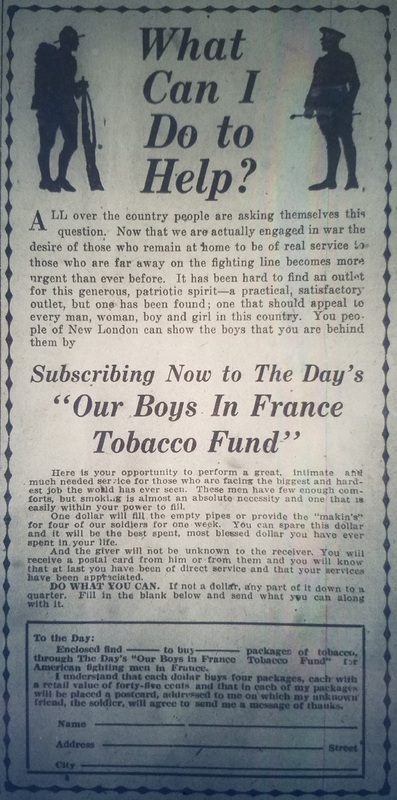What Can I Do To Help?
Brother, Can I Have Some Change?
The concept of advertising in print media was a brilliant move for marketers as it certainly boosted profitability. There were more people working, and as we have seen, unemployment was down to record levels under 2%. But that did not necessarily mean that individuals had more money. Wages were more or less stagnant. Businesses were a business, not charities. The large infrastructure which was built to keep up with war demands was not cheap, nor did many give out of the kindness of their hearts. Everything had a price tag, a quid pro quo. While it is true that many companies had contracts with the government to provide their goods and services to the boys in the trenches, because of the ever increasing size of the military and the growing demands that they required, those contracts were often lagging behind in supply. On the federal side, large demands meant smaller objects were put on the back if not directly required. If they didn't fit into the budget, they were often left out.
Tobacco was one of those products. Used heavily by all sides in the war either as pipe or rolled into cigarettes, the demand was high and each nation handled it differently. The Allies were the most similar and drew mostly from American companies. The Russians had ample supplies but they were of the most harsh product. The Central Powers relied heavily upon the Ottomon Empire, their Middle Eastern ally, for all of their tobacco needs. The "turkish" blends became quite popular, even in some American blends, as it was developed a decade before the outbreak of hostilities.
Promotions soon began to appear to fill in these gaps. Requests appeared in newspapers and on billboards. Placards and cans on counters appeared everywhere asking for spare change for the troops, or widows, or orphans of the war. If business would not supply it, and if the government couldn't manage it, the American people were up to the challenge. All across the nation, the generosity of a few added up to many, and many of the war needs were met. Where the War Department was able to handle donations and supplies sent in, excess went to the American Red Cross, or any number of verified charity organizations.
